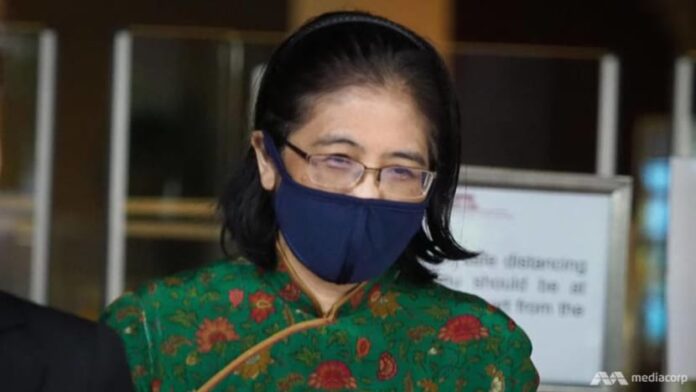SINGAPORE: The Court of Appeal on Monday (March 14) confirmed the decision of the Bar Council to dismiss a complaint against the late Mr Lee Kuan Yew’s lawyer, Ms Kwa Kim Li.
The complaint is one of four lodged against Ms Kwok by Dr Lee Wei Ling and Mr Lee Hsien Yang, the children of Mr Lee Kuan Yew and the executors of his estate.
The court dubbed it a “first complaint” alleging that Ms Kwok failed to comply with Mr Lee Kuan Yew’s instructions to destroy six of his superseded wills.
Other complaints against Ms Kwa include:
She wrongly disclosed privileged and confidential documents to Prime Minister Lee Hsien Loong without the approval of the executor (second complaint);
She did not properly document the instructions she received from Mr Lee Kuan Yew and the advice she gave him (third complaint); and
Her letters dated 4 June 2015 and 22 June 2015 gave the executor a false and misleading impression, failing to mention certain discussions between her and Mr Lee Kuan Yew (fourth complaint).
The founding Prime Minister of Singapore, Mr Lee Kuan Yew, passed away on 23 March 2015.
From 20 August 2011 to 2 November 2012, Ms Kwok, managing partner of Lee Kuan Yew Law Firm, prepared six wills for Mr Lee Kuan Yew. She was not involved in the preparation of his seventh and final will.
It will eventually restore equal shares of Mr Lee Kuan Yew’s three children’s property and reintroduce a clause requiring the demolition of his house at 38 Oxley Road.
Lawyer Li Xuefen (wife of Mr Lee Hsien Yang) has been suspended in 2020 for misconduct in handling final wills.
Event leading to appeal
In its first report on 8 May 2020, a committee of inquiry convened by the Law Society recommended that the first and second complaints should be referred to the Disciplinary Tribunal.
It said the third and fourth complaints were not filed and should be dismissed.
The Law Society Council raised further questions on the first and second complaints and referred the matter to the Committee for further consideration.
In the Commission’s second report, dated 3 August 2020, it reversed its position on the first complaint, recommending that it be dismissed.
It stood by its original position that the second complaint should be brought to the Disciplinary Court.
Dr Lee and Mr Lee Hsien Yang then applied to the High Court for an order that the Law Society apply to the Chief Justice to appoint a disciplinary tribunal to conduct a formal investigation into Ms Or’s conduct in each of these complaints.
On April 21 last year, Judge Valerie Thean granted their first and fourth complaints. The judge dismissed the third complaint.
Judge Thean’s decision on the first complaint was the subject of an appeal by the Bar to the Court of Appeal.
Decision of the Court of Appeal
The decision of the five-judge panel was made by Chief Justice Sundaresh Menon. The court said the appeal raised two issues.
The first question is whether the Council of the Law Society has the power to refer the matter to the Commission of Inquiry for consideration where the Commission has decided that a formal investigation should be conducted by the Disciplinary Tribunal.
This involves interpreting the part of the Legal Profession Act that provides for disciplinary procedures in the case of complaints.
The court ruled that under the “vernacular” of that part of the bill, the Council of the Bar was empowered to do so.
The second issue for the court to decide is whether a prima facie case of Ms Kwa’s misconduct in the first complaint warrants a formal investigation by the disciplinary tribunal.
The Court of Appeal’s decision stated that the Commission of Inquiry’s conclusion that there was no prima facie evidence in the first complaint was “sufficiently substantiated”.
The court said the essence of the first complaint was that Mr Lee Kuan Yew instructed Ms Or
“Physically destroy” earlier wills, meaning that no trace of the will will be left.
Ms Kwok explained to the committee that the word “destroy” was her own term and that Mr Lee Kuan Yew had never used it when they discussed the superseded will.
“She further explained that when she used the word, she was doing so in reference to the act of invalidating the will, which we understand in the sense of undermining its legal effect,” the judgment said.
“She also explained that (Mr Lee Kuan Yew) would often ask her what was in her previous will and then she needed to be able to refer to the previous will.”
Court says there is no evidence Mr Lee Kuan Yew “intended or directed” his will to be






